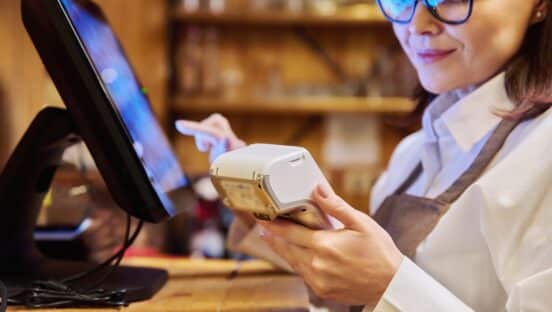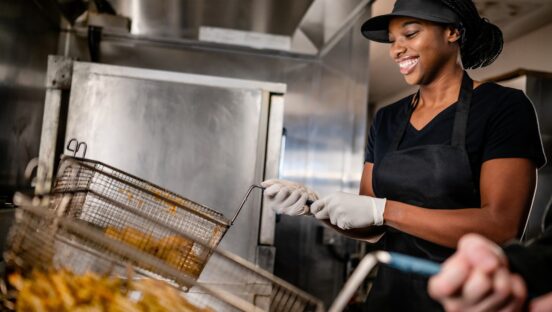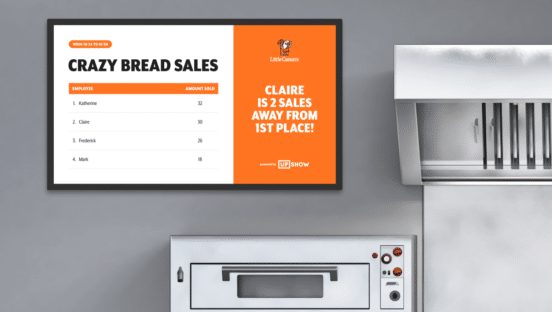





Operators are well aware of labor scarcity, high food costs, inflation, and intense competition; however, finding solutions may be less obvious. Facing these realities, it is more important than ever for operators to receive reliable, timely, and actionable data to improve operations and guest experiences constantly.
Mystery shopping is one tool in an operator’s toolbox that can help brands maintain their competitive edge, identify points of friction in the guest experience, and ensure employees are delivering on the brand’s standards.
While mystery shopping has been a practice used by quick-serve brands for the better part of 50 years, there are modern approaches and strategies that make these programs more relevant today than ever.
The following slides will dig into how mystery shopping programs can provide invaluable, objective insight into customer experiences, internal processes, brand consistency, and procedures across hundreds or even thousands of locations.
Sixty-one percent of customers have switched brands due to poor customer service, according to a report by pwc. Identifying which procedures are followed and how customers interact with the brand is crucial to success. Mystery shopping can give insight into whether employees have the right training and if they are adhering to brand standards.
“Brands invest both time and resources into revamping standard operating procedures, launching new promotions, or even incentive programs,” says Laura Livers, chief revenue officer at Intouch Insight. “However, if employees aren’t executing to standards, you may think a program has failed when, in reality, it simply has not been executed properly.”
If performed at a regular cadence, mystery shopping delivers ongoing snapshots of what is happening on the ground across all locations. Just like any feedback or research tool, setting up an ongoing, monthly mystery shopping program will lend more objective, actionable results.
Sending anonymous shoppers into stores around the country ensures brands get objective, factual feedback on a variety of customer touchpoints. “Everybody has different viewpoints but mystery shopping is a yes or no,” Livers says. “While there can be more subjective questions, such as ‘Was the service good?’ questions like ‘Were they wearing the proper uniform?’ or ‘Was the sandwich made in the proper order?’ Are objective yes or no’s.”
Operators and employees can be plagued with the subjectivity of customer reviews on platforms like Yelp. This can leave operators with fewer answers than before. Did the customer not like the procedure in place? Did an employee not follow the right procedures leading to a breakdown in communication?
In addition to objectively determining if standards are being adhered to, mystery shopping can often uncover other underlying issues. “I remember a client who received feedback on their mystery shopping questionnaires that the lettuce in their burger was brown,” Livers says. “What they were ultimately able to uncover was to track back through the supply chain to the specific farm that was sending bad lettuce. If quality is decreasing but you have no idea why—operators have to dig and dig—with the mystery shopping program, the data is right there.”
Programs like mystery shopping may seem like a ‘gotcha’ moment, but these programs can work nicely with incentives so employees have buy in as well. According to Livers, many mystery shopping program clients use the data and objective feedback from the program as part of their regular training.
“Operators get good feedback and use it for positive reinforcement or to adjust policies, training, and manuals,” Livers says. “Mystery shopping doesn’t always have to be about what are employees doing wrong. Using tools like crew incentive programs, employees receive immediate feedback when they follow the proper standard. This can go a long way in reinforcing the behaviors that brands want employees to exhibit. ”
As technology continues to advance, video mystery shopping is another approach that has emerged. “When it comes to execution in the field, seeing is believing”, Livers says. “Seeing the customer experience live provides operators with powerful insights at their locations.” Using the videos, brands can create powerful training material that resonates with staff and reinforces expectations around great guest experiences.
Mystery shopping isn’t just about measuring adherence to standards. The same principles for sending anonymous shoppers into your restaurants can be used to collect insights on your competitors to ensure you stay ahead of the curve. Whether it’s pricing strategies, analyzing customer service standards, or monitoring food quality and product availability, competitive mystery shopping can help you understand what is happening right around the corner. Using mystery shopping as a market research tool can help brands understand the competitive landscape when they enter a new market and measure their service standards against those of the local operators, enabling targeted improvements that enhance both customer satisfaction and brand consistency. Livers summarizes, “Operators pay money to get many different specific data points, but market research—with mystery shopping as the example here—can help pull it all together.”
In all its forms, Mystery shopping is most powerful when the results are analyzed alongside other business metrics and customer feedback. Intouch Insight has a comprehensive suite of solutions for clients. Instead of jumping from one platform to another, thousands of data points can be easily visualized in a single space.
“Operators, especially at the store level, are looking for streamlined solutions to eliminate having to log in to many different systems every day,” Livers says. “Keeping track of all the different logins and passwords can be time-consuming and cumbersome, and can reduce the level of buy-in to programs.”
At the corporate level, rather than spending time and money physically checking in on multiple locations, mystery shopping programs give operators accurate information and consistency, allowing them strengths and weaknesses location by location. Intouch Insights’ data-driven solutions can help operators and chains take the mystery out of their operations with tools like their Multi-location Mystery Shopping program and much more.
CTA: For more information on Intouch Insights mystery shopping program visit their website.













